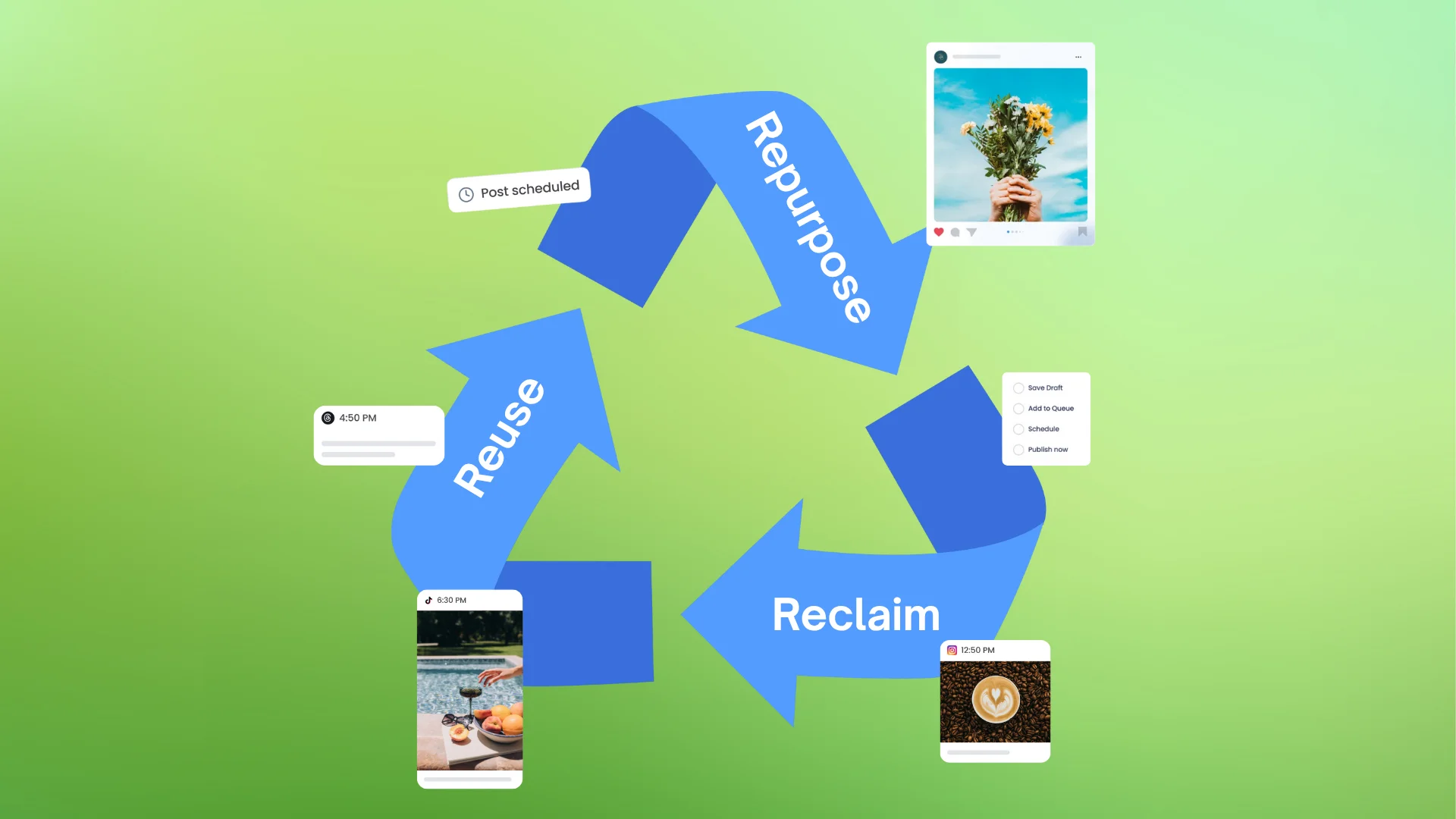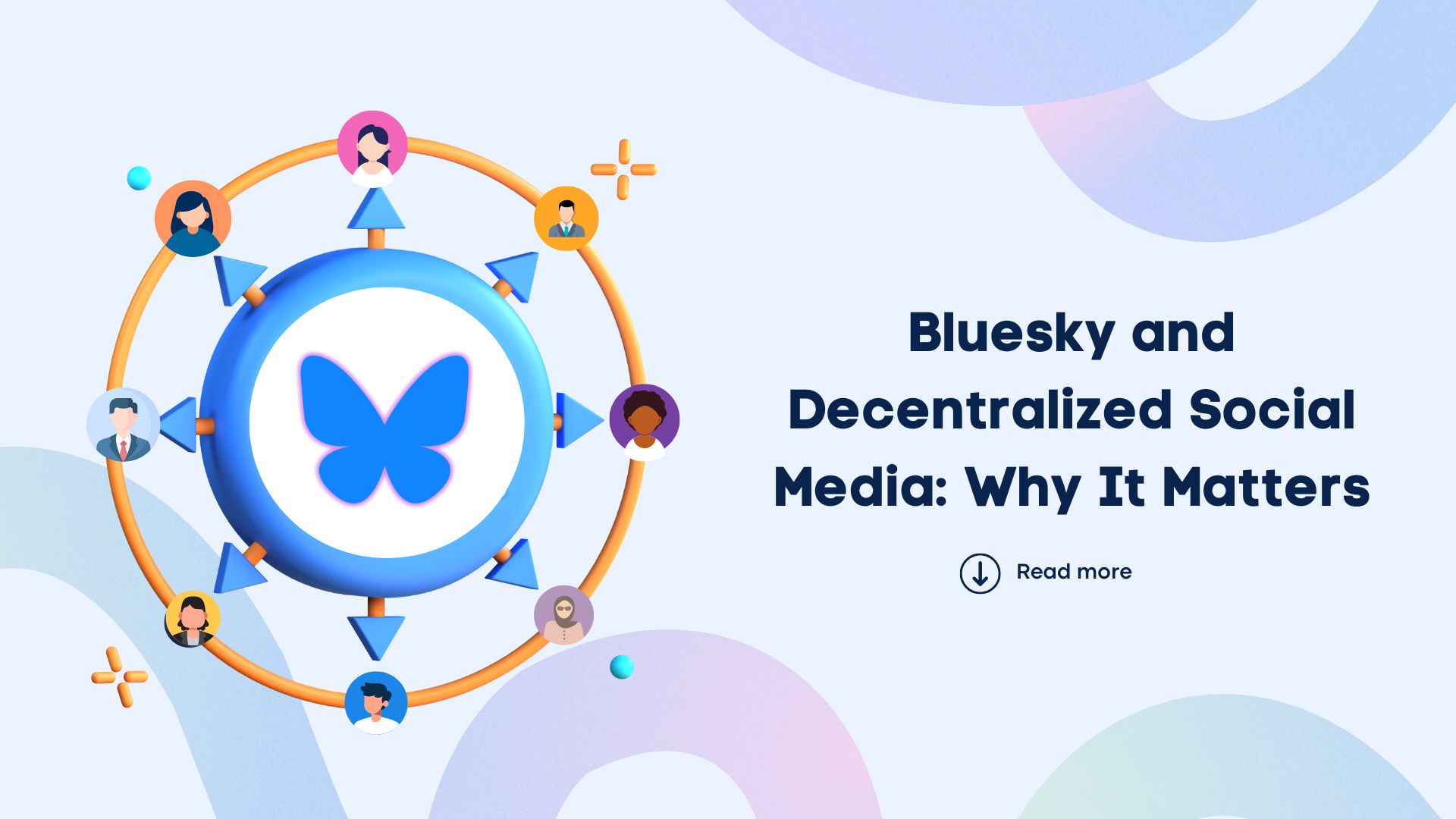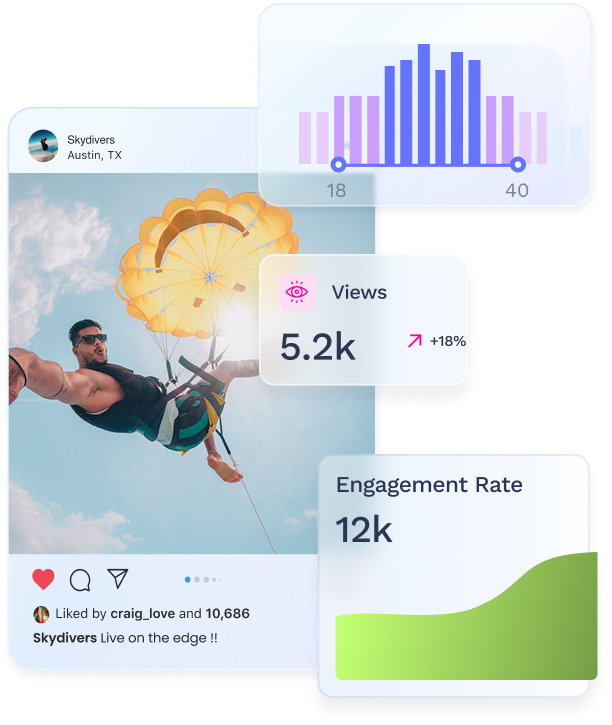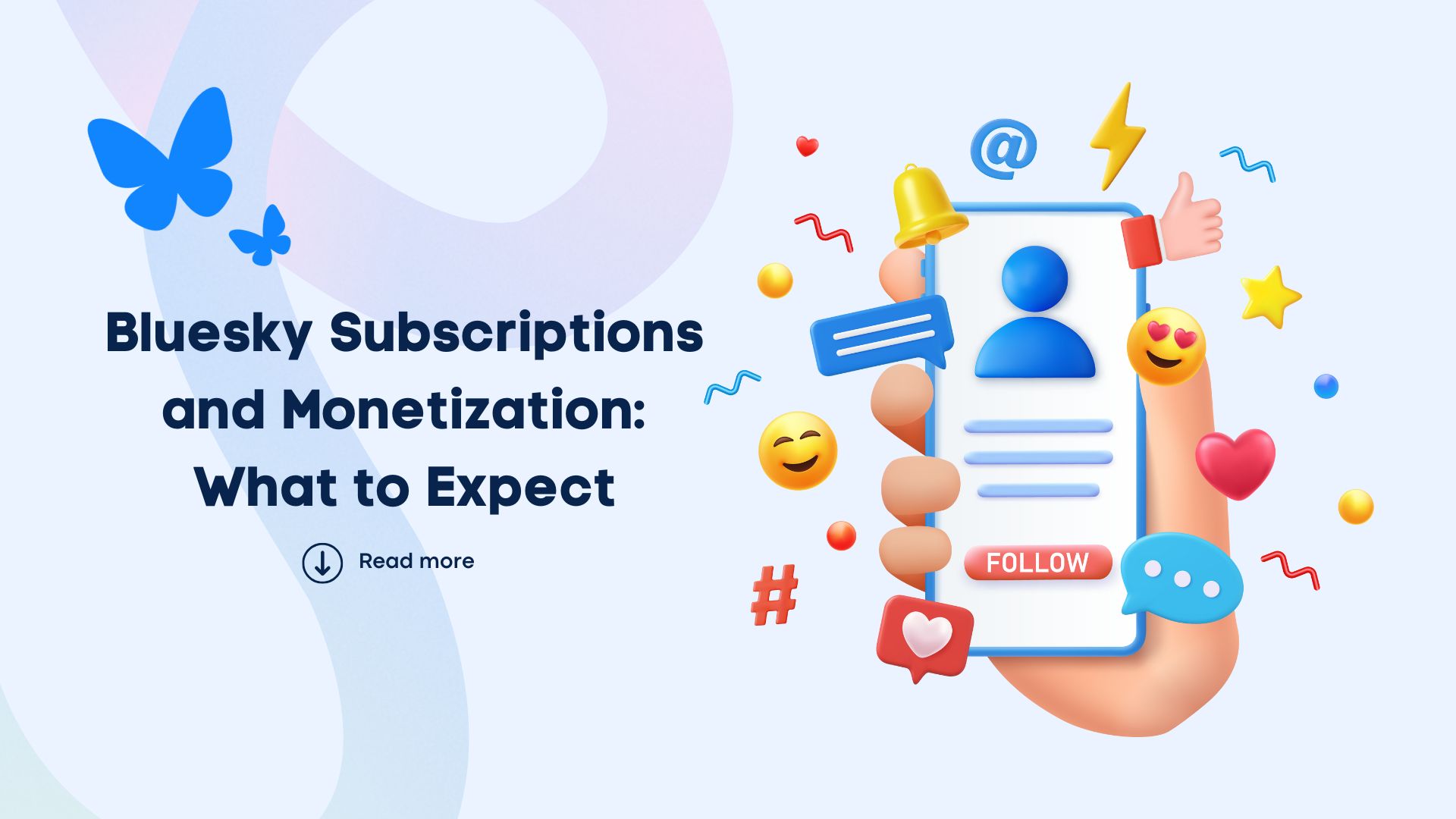New

Turn Your DMs Into Lead Gen!
Learn how to collect lead data from your DMs such as email addresses, phone numbers, and more right from your social inbox. If you are not yet automating your DMs your competitors are outpacing you.

How Something Social Saved 75% of Their Time and Increased Revenue by 15%
See how a fast-growing agency improved operations, cut down hours of manual work, and unlocked new revenue opportunities with Vista Social.
New

50 Unique Social Media Ideas for Consistent Content Creation
Discover 50 unique social media post ideas to engage your audience, grow your brand, and maintain a consistent content strategy with ease!

Mastering Content Reuse: The Key to a Consistent and Sustainable Posting Strategy
Published on December 21, 2024
12 min to read
Bluesky and Decentralized Social Media: Why It Matters
Summarize with AI

Summarize with AI
ChatGPT
Claude
Perplexity
Share
Vista Social
X (Twitter)
Table of contents
Summarize with AI
ChatGPT
Claude
Perplexity
Share
Vista Social
X (Twitter)
In a world dominated by centralized social media giants, a quiet revolution is reshaping the digital landscape. Bluesky and decentralized social media platforms, now boasting a growing user base of 20 million, are gaining momentum by offering users greater control, freedom, and privacy. These platforms are not merely alternatives but pioneers of a movement poised to redefine how we connect and communicate online.
Why does this matter? Because the traditional model of social media is showing its cracks—data breaches, algorithmic manipulation, and concerns over free speech have left many users searching for something better. Decentralized platforms offer a solution, putting power back into the hands of users and communities.
In this blog, we’ll explore the rise of decentralized social media, its transformative potential, and why platforms like Bluesky are at the forefront of this digital evolution. Could Bluesky and decentralized social media be the future of online interaction? Let’s dive in.
Table of contents
The Era of Decentralized Social Media
As the digital landscape evolves, the spotlight has shifted to decentralized social media, a movement reshaping how we connect and share online. This shift promises more freedom, privacy, and transparency—essential values in a time when the pitfalls of centralized platforms are more evident than ever.
What Is Decentralized Social Media?
Decentralized social media refers to platforms that operate on distributed networks rather than centralized servers owned by a single company. This model eliminates the middleman, allowing users greater control over their data, privacy, and the content they create.
Unlike traditional platforms like Facebook or X (formerly known as Twitter), decentralized platforms are typically built on blockchain technology. These systems distribute data across multiple nodes, reducing the risk of censorship, manipulation, or data misuse.
Several platforms are leading the decentralized movement:
- Bluesky: Spearheaded by former Twitter CEO Jack Dorsey, Bluesky is designed on the AT Protocol, aiming to create an open and interconnected online environment.
- Mastodon: Operating as a federated network, Mastodon allows users to join independently run servers, fostering diverse communities with unique moderation policies.
- Threads: Initially launched as a rival to Twitter, Threads is experimenting with integrating decentralization using the ActivityPub protocol, which also powers Mastodon.
Why Traditional Social Media Falls Short
While traditional platforms have fueled social connectivity, they come with significant drawbacks:
- Control: Centralized platforms exercise substantial control over content moderation and algorithmic visibility, often prioritizing profit over user interests.
- Privacy: Corporate-owned platforms collect vast amounts of personal data for targeted advertising, raising serious privacy concerns.
- Content Ownership: Users on these platforms rarely own their content outright. Instead, corporations often hold the rights, restricting how and where users can share their creations.
While these platforms are still evolving, they represent a compelling vision of a more democratic, user-centric internet. As awareness grows and technology improves, we might be witnessing the early stages of a significant transformation in how we connect, share, and interact online.
Ownership and Autonomy: Redefining Control
The conversation about ownership and autonomy has gained momentum, with individuals and communities increasingly advocating for control over their content and connections. This section explores why these factors matter and how platforms like Bluesky are stepping in to redefine user agency.
The Importance of Ownership
Ownership of content and audience isn’t just a buzzword—it’s a foundational principle of digital independence. When users don’t own their data, they risk losing years of content and connections if a platform changes policies, collapses, or locks them out.
This lack of control can hinder creators, entrepreneurs, and everyday users alike, reducing their ability to maintain consistent engagement or protect their intellectual property.
By prioritizing ownership, users can ensure:
- Content Stability: The ability to retain and transfer their work across platforms.
- Audience Portability: Freedom to stay connected with their followers regardless of platform policies.
- Data Privacy: Protection of personal information from misuse.
These elements empower users to build sustainable, independent online presences without relying solely on the whims of centralized platforms.
Bluesky’s Solution
Bluesky, a decentralized social media protocol, offers tools that embody user ownership and autonomy. Its design prioritizes independence and control, giving users the power to manage their digital footprint more effectively.
Key features include:
- Decentralized Protocol: Instead of being tied to a single platform, users can interact with multiple apps built on the Bluesky framework, ensuring freedom and flexibility.
- Data Portability: Users can move their content and audience seamlessly between platforms without losing connections or engagement.
- Custom Algorithms: Bluesky allows users to choose or create algorithms that shape their experience, rather than relying on platform-driven feeds.
By focusing on these features, Bluesky aims to give control back to the users, fostering a digital environment where ownership and autonomy are the norm, not the exception.
[Must Read: How to Use Bluesky: A Complete Guide for New Users]
The Role of Open Standards in Innovation
Open standards are the backbone of technological progress, fostering collaboration and driving innovation across industries. By creating shared protocols and frameworks, open standards enable developers, organizations, and users to work together seamlessly, breaking down silos and encouraging creativity.
The Foundation of Open Standards
Open standards are technical guidelines available for anyone to adopt. They are crucial in ensuring interoperability and reducing barriers to entry for innovators. Two prominent examples of modern open standards, the AT Protocol and ActivityPub, illustrate their transformative potential.
- AT Protocol: Short for Authenticated Transfer Protocol, this open standard supports decentralized social networking by allowing users to control their identity and data independently of any specific platform. It separates content from the platform, encouraging interoperability and reducing dependency on large, centralized systems.
- ActivityPub: A decentralized protocol widely used in platforms like Mastodon, ActivityPub enables different servers to communicate and share content. By creating a standardized framework for interaction, it fosters a federated system where users on separate platforms can engage seamlessly.
These standards foster innovation and collaboration by:
- Interoperability: Both protocols make it easy for different platforms to work together, reducing fragmentation and encouraging integration.
- Empowered Users: By decentralizing control, they prioritize user ownership of data and identity, promoting trust and accountability.
- Ecosystem Growth: Open standards create opportunities for new platforms, tools, and services to emerge, enriching the digital landscape.
- Democratized Innovation: With freely accessible specifications, even small teams or startups can build on these standards, ensuring a level playing field.
Lessons from the Open Web
The concept of open standards is not new; historical successes like HTTP and DNS demonstrate their profound impact on innovation and accessibility:
- HTTP (Hypertext Transfer Protocol): This protocol became the foundation of the World Wide Web, enabling browsers and servers to communicate universally. Its open nature allowed developers to build websites and services, driving the internet’s rapid growth.
- DNS (Domain Name System): DNS serves as the internet’s addressing system, translating human-readable domain names into machine-readable IP addresses. Its open framework ensured the internet could scale globally, connecting billions of users and devices.
The internet runs on amazing shared rules that let different computers and apps communicate smoothly. Standards like HTTP and DNS are the invisible bridges that connect our digital world. Newer protocols like AT Protocol and ActivityPub are continuing this tradition, making online communication more open and interconnected.
What makes these standards powerful is how they’re created – through collaboration between developers, researchers, and tech enthusiasts. They’re not static; they evolve with technology, always keeping the goal of making digital connections easier and more accessible for everyone.
It’s like a global team effort to make the internet work better, one protocol at a time.
Bluesky’s Unique Approach to Social Media
Bluesky stands out in the crowded social media space by rethinking the way users interact with content, algorithms, and each other. Unlike traditional platforms, Bluesky empowers users with tools that emphasize customization, transparency, and ease of use.
Custom Feeds and Algorithm Freedom
Bluesky takes a revolutionary approach to content algorithms, allowing users to shape their experience through user-defined algorithms. Instead of being limited by a single algorithm that dictates what you see, Bluesky provides the freedom to choose or even create personalized feeds that align with your preferences.
This level of customization fosters a more engaging experience:
- Tailored Content Delivery: Users can prioritize topics, creators, or trends that matter to them, ensuring that their feed reflects their unique interests.
- Transparency: By letting users select their algorithm, Bluesky removes the mystery behind how content appears, creating a sense of trust and control.
Ultimately, this approach transforms social media into a space where users dictate the narrative, making every scroll feel relevant and intentional.
Starter Packs for Seamless Onboarding
Bluesky simplifies the often-daunting process of joining a new platform with its innovative Starter Packs. These pre-curated options help new users get started quickly by suggesting feeds, communities, and creators tailored to their interests.
Key benefits include:
- User-Friendly Experience: Starter Packs eliminate the guesswork for newcomers, ensuring they immediately engage with content that resonates.
- Encouraging Exploration: By introducing users to diverse content early on, Bluesky fosters a sense of curiosity and belonging.
This thoughtful onboarding strategy ensures that Bluesky feels welcoming and intuitive, setting it apart from platforms that leave users to navigate overwhelming options on their own.
Accessibility and Usability for All
Imagine a world where you truly own your social media experience. That’s the promise of platforms like Bluesky and decentralized social media. But let’s be real – for most people, these platforms can feel like trying to solve a complex puzzle without the instructions.
We’ve all been there. You want more control over your online presence, but the moment you hear terms like “private keys” and “decentralized protocols,” your brain starts to shut down.
Bluesky gets this. They’re not just building a fancy tech platform–they’re building something that feels as easy to use as the social media apps you already know. No complicated manuals, no confusing technical hurdles–just a simple, intuitive experience.
This isn’t just about making things look pretty. It’s about breaking down the walls that keep everyday people from enjoying the benefits of decentralized platforms. More control, more privacy.
By focusing on what users actually want–an easy, enjoyable way to connect online–Bluesky is showing that decentralized social media can be for everyone. Not just tech nerds, but your friends, your parents, basically anyone who wants a better way to share and connect online.
The future of social media isn’t about complicated technology. It’s about making technology so simple that you don’t even notice it’s there. And platforms like Bluesky are leading the way.
Why Decentralized Social Media Matters
Still not convinced why decentralized social media deserves attention? Let’s explore why this movement is more than just a fleeting trend—it’s a paradigm shift that could reshape our digital future.
A Philosophical Shift
Decentralized social media represents more than just a technological change—it’s a transformation in values and priorities. Unlike traditional platforms dominated by centralized corporations, decentralized platforms align with principles of transparency, ownership, and community empowerment.
Transparency is at the heart of this shift. On decentralized platforms, algorithms and data practices are often open-source, allowing users to understand how their information is used. This openness fosters trust, addressing long-standing concerns over privacy and manipulation.
Ownership is another cornerstone. Think about it: on traditional platforms, when you post something, you’re basically giving that company free rein with your content. With decentralized social media, you’re in control. Your posts, your rules. Creators can actually benefit from their own work instead of big tech companies profiting from their creativity.
Finally, community empowerment thrives in these systems. Decision-making is no longer confined to a boardroom; governance often includes user input. Want to change a platform rule? You might actually get to vote on it. It’s social media that actually feels social.
Long-Term Implications
Right now, social media is basically a big attention machine. Companies make money by keeping you scrolling, showing you ads, and harvesting your data. Decentralized platforms flip that script. Instead of advertisers being the real customers, you—the user—become the priority. They are exploring ways to reward users directly, whether through token systems or paid subscriptions. No more feeling like you’re just another data point.
These new platforms also mean more choices. Right now, a handful of tech giants control almost everything we see online. Decentralization could change that, letting smaller, more focused platforms emerge. Imagine social networks that cater to specific interests, where quality matters more than viral clickbait.
Most importantly, decentralized social media has the potential to return the internet to its original vision: an open, collaborative space where users have agency. By prioritizing individuals over profits, these platforms could foster healthier online interactions, reduce the spread of misinformation, and create spaces where communities flourish authentically.
In the long run, decentralized social media isn’t just a trend—it’s a call to rethink the way we connect, share, and collaborate in the digital age.
Opportunities for Businesses and Creators
Maximize your opportunities with decentralized platforms and unlock new potential in the digital landscape. Here’s how you can benefit and thrive in this evolving space:
The Benefits of Decentralized Platforms
Decentralized platforms like Bluesky and Mastodon offer creators and businesses unique advantages in today’s digital landscape. By shifting control away from centralized authorities, these platforms provide a more transparent and equitable environment for users.
- Maintaining control over content and audience: Creators can establish direct connections with their audience without the interference of algorithms or policies that prioritize profit over user experience. This fosters stronger, more meaningful relationships and ensures that content reaches its intended audience.
- Potential for innovation and authentic engagement: The open and flexible nature of decentralized platforms encourages creativity and innovation. Businesses can experiment with new approaches, tailoring their content to meet the needs of niche communities and fostering genuine connections.
Tools to Manage Decentralized Platforms
Managing decentralized platforms effectively requires tools that simplify operations while maximizing engagement. One such solution is Vista Social.
- Streamlines decentralized platform management for businesses: Vista Social provides a centralized hub for scheduling, monitoring, and analyzing content performance across decentralized platforms.
- Enhances productivity and engagement on platforms like Bluesky and Mastodon: By offering seamless integration with these platforms, Vista Social helps businesses stay connected with their audience and maintain a consistent content strategy.
Looking for a Bluesky management tool? Explore Vista Social’s Bluesky integration to see how it can optimize your content strategy.
[Must Read: Vista Social Supports Bluesky: Master Decentralized Social]
Embracing the Decentralized Future of Social Media
Decentralized social media is a vital shift in how we engage with online platforms. By promoting user control, privacy, and a diverse range of content, decentralized networks offer a promising alternative to traditional, centralized social media giants. The freedom from algorithm-driven censorship and the ability to own and manage data are powerful benefits that make decentralized platforms essential for the future of digital interaction.
If you haven’t already, consider exploring Bluesky and decentralized social media platforms that embody this ethos. Bluesky, for example, provides a fresh and more transparent way to connect, share, and build your online presence.
Take the next step in embracing this new era—start integrating Bluesky and decentralized social media networks into your social media strategy today. Whether you’re a content creator, business owner, or simply an avid user, exploring decentralized platforms can help you stay ahead of the curve and build a more secure, authentic online community.
P.S. If you’re new here, Vista Social is a powerful all-in-one social media management platform tailored for marketing agencies, freelancers, and social media managers. Our platform provides advanced tools to boost collaboration, streamline workflows, and elevate social media marketing success.
Sign up for your Vista Social account now to explore our features and take your social media strategy to the next level!
FAQS on Bluesky and Decentralized Social Media
How do decentralized platforms handle spam and abuse?
In decentralized platforms, spam and abuse are often dealt with through community-driven moderation and automated systems. Since no central authority controls the platform, users, or groups of users, can define and enforce their own rules for acceptable behavior. Some platforms also implement reputation systems or use algorithms to flag inappropriate content, but it ultimately relies on users to set standards.
Is Bluesky fully decentralized?
While Bluesky operates on decentralized principles using the AT Protocol, it is still in early stages and has some centralized aspects. The Bluesky project itself is being led by a team, and currently, it is hosted on servers controlled by them. However, its long-term goal is to build a more distributed and decentralized infrastructure.
Can Bluesky be monetized like traditional platforms?
Bluesky and decentralized platforms generally offer different monetization options than traditional platforms. Instead of relying on ad revenue models controlled by a single entity, Bluesky might explore methods like user-driven micropayments, content creator subscriptions, or more community-based funding mechanisms. This would give creators more autonomy over their earnings.
Can I migrate my data from traditional social media to Bluesky?
While Bluesky aims to be user-centric, it currently does not have full data portability features for migrating all user content from traditional social media. However, as decentralized networks develop, interoperability and data portability between different platforms will become a key feature, allowing users to easily transfer their content across platforms without losing control over their data.
Is decentralized social media a solution to misinformation?
Decentralized social media offers potential solutions to misinformation, but it also presents challenges. Since there’s no central authority to enforce truthfulness, misinformation can spread quickly without effective checks. However, decentralized platforms can implement community-based or algorithmic mechanisms to highlight credible sources, and some believe it could foster a more open dialogue to counter false information. The effectiveness depends on how these platforms handle governance and moderation.
Can Bluesky interact with other social media platforms?
Yes, one of the goals of decentralized platforms like Bluesky is interoperability. The AT Protocol allows Bluesky to communicate with other platforms that support the same protocol, making it easier for users to engage across different networks. This opens the door for a more connected social media experience without being locked into a single platform.

Try Vista Social for free
A social media management platform that actually helps you grow with easy-to-use content planning, scheduling, engagement and analytics tools.
Get Started NowAbout the Author
Content Writer
Content writer and copywriter with over 2 years of experience, specializing in VSL scriptwriting. I’ve worked with various brands to create compelling content. Passionate about storytelling that connects and converts. Loves cats, poetry, and skincare
Read with AI
Save time reading this article using your favorite AI tool
Summarize with AI
Never Miss a Trend
Our newsletter is packed with the hottest posts and latest news in social media.

You have many things to do.
Let us help you with social media.
Use our free plan to build momentum for your social media presence.
Or skip ahead and try our paid plan to scale your social media efforts.
P.S. It will be a piece of cake 🍰 with Vista Social
Subscribe to our Newsletter!
To stay updated on the latest and greatest Social Media news. We promise not to spam you!
Enjoyed the Blog?
Hear More on Our Podcast!
Dive deeper into the conversation with industry insights & real stories.


